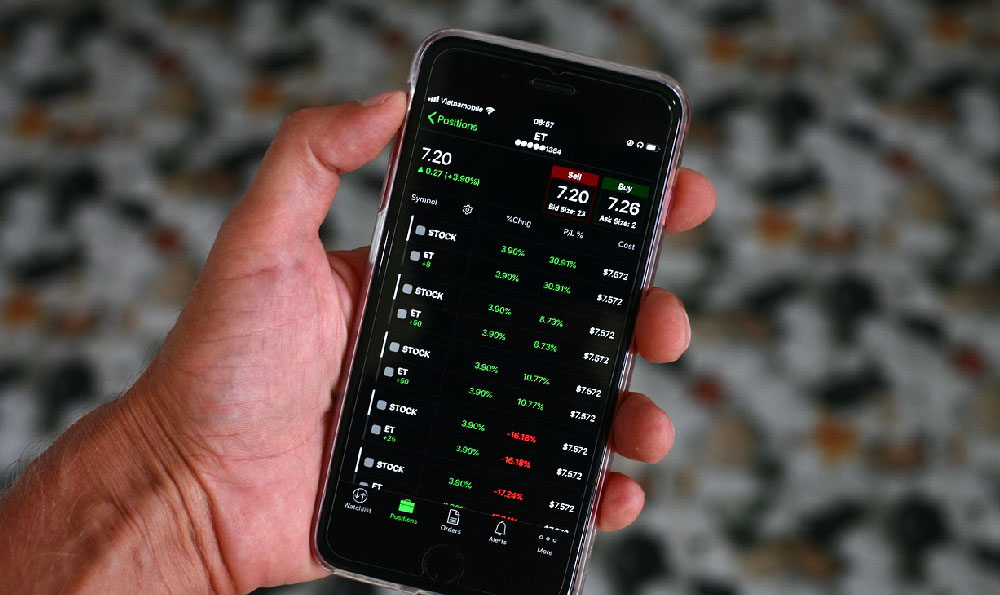
Day trading, the practice of buying and selling financial instruments within the same trading day, aiming to profit from small price fluctuations, has captivated the imaginations of many aspiring investors, particularly in the volatile world of cryptocurrencies. The allure of quick riches and financial independence fuels this fascination. However, the reality of day trading is far more nuanced and challenging than the get-rich-quick schemes often portrayed. Before diving headfirst into this high-stakes game, it's crucial to examine the potential profitability and, more importantly, the inherent risks involved.
Theoretically, day trading offers the potential to generate significant profits. The cryptocurrency market, known for its extreme volatility, presents numerous opportunities for nimble traders to capitalize on short-term price swings. Using technical analysis, charting patterns, and real-time market data, day traders attempt to identify these fleeting opportunities and execute trades accordingly. A skilled and disciplined trader, armed with the right tools and knowledge, can potentially achieve a positive return. Consider the scenario where a trader identifies a short-term upward trend in Bitcoin's price, purchases a small amount, and sells it within hours as the price peaks, capturing a profit on the difference. Repeated consistently and strategically, such trades can indeed contribute to a substantial income.
However, the path to profitability in day trading is littered with obstacles and pitfalls. The volatile nature of the cryptocurrency market, which is often touted as its main advantage, is simultaneously its greatest threat. Prices can fluctuate wildly and unpredictably, often driven by factors unrelated to fundamental value, such as news headlines, social media sentiment, or even simple market manipulation. A trader who is not prepared for these sudden shifts can easily find themselves on the wrong side of a trade, incurring significant losses in a matter of minutes. Imagine a trader holding a large position in a particular cryptocurrency, only to see its price plummet due to a negative news article. Without proper risk management strategies, such a scenario could lead to devastating financial consequences.

Furthermore, day trading is not merely about reacting to price movements; it requires a deep understanding of market dynamics, technical analysis, and risk management. Successful day traders possess a comprehensive knowledge of charting patterns, technical indicators, and trading strategies. They can interpret market data, identify potential entry and exit points, and execute trades with precision and speed. They are also adept at managing risk, using stop-loss orders to limit potential losses and diversifying their portfolios to mitigate overall risk. The learning curve is steep, and it takes significant time, effort, and dedication to acquire the necessary skills and knowledge. Aspiring day traders should be prepared to invest in education, training, and practice before risking significant capital.
Beyond knowledge and skill, emotional discipline is paramount. The fast-paced and high-pressure environment of day trading can trigger strong emotions such as fear, greed, and panic. These emotions can cloud judgment and lead to impulsive decisions, which are often detrimental to trading performance. A successful day trader must be able to remain calm and rational under pressure, sticking to their pre-defined trading plan and avoiding emotional trading. This requires a high degree of self-awareness, self-control, and mental fortitude.
Another significant factor to consider is the cost associated with day trading. These costs can include trading commissions, platform fees, data feeds, and software subscriptions. These expenses can eat into profits, particularly for small-scale traders. Moreover, day trading can be extremely time-consuming, requiring hours of monitoring the market, analyzing data, and executing trades. This can be a significant drain on time and energy, potentially impacting other aspects of life.
The question of whether day trading is worth the risk is highly subjective and depends on individual circumstances, risk tolerance, and financial goals. For some, the potential rewards may outweigh the risks, while for others, the risks may be too great. Before engaging in day trading, it's crucial to carefully assess your financial situation, risk tolerance, and time commitment. It's also essential to conduct thorough research, acquire the necessary skills and knowledge, and develop a sound trading plan with robust risk management strategies.
For those who are risk-averse or lack the time and resources to dedicate to day trading, there are alternative investment strategies that may be more suitable. These include long-term investing, diversification, and dollar-cost averaging. Long-term investing involves holding assets for an extended period, typically years or even decades, to benefit from long-term growth. Diversification involves spreading investments across different asset classes to reduce risk. Dollar-cost averaging involves investing a fixed amount of money at regular intervals, regardless of market conditions, to smooth out price fluctuations. These strategies are generally less risky and less time-consuming than day trading, but they may also offer lower potential returns.
In conclusion, while day trading can potentially generate profits, it is a high-risk and demanding activity that is not suitable for everyone. The cryptocurrency market's volatility, the need for specialized knowledge and skills, the importance of emotional discipline, and the associated costs all contribute to the challenges of day trading. Before venturing into this arena, individuals must conduct thorough research, assess their risk tolerance, and develop a sound trading plan with robust risk management strategies. If the risks seem too high or the time commitment too demanding, alternative investment strategies may be a more prudent choice. Remember that successful investing is a marathon, not a sprint, and patience, discipline, and a long-term perspective are often the keys to achieving financial success. Always prioritize protecting your capital and making informed decisions based on thorough research and careful analysis.





